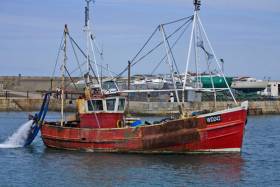Displaying items by tag: Inshore Fisheries Strategy
#Fishing - Marine Minister Michael Creed TD has launched a public consultation on the Inshore Fisheries Strategy, following a proposal made by the National Inshore Fisheries Forum.
The consultation process will be open for a seven-week period and is due to close on Friday 17 August.
The proposed strategy will frame the work of the Inshore Forums over the next number of years. It follows an extensive consultation process involving the National and Regional Inshore Fisheries Forums on initiatives that seek to cultivate a more sustainable, profitable and well-managed inshore fisheries sector.
This is the first time in the history of the State that inshore fishermen have set about developing a sector-specific strategy for themselves, the minister’s department added.
“I welcome the crucial role that the Inshore Fisheries Forums have played in its development and I am pleased that the Forum members are continuing to take the lead when it comes to engaging with issues that affect the inshore sector. I would like to thank BIM for facilitating the Forums in undertaking this task,” Minister Creed said.
The development of an inshore strategy will underpin a sustainable inshore fisheries sector and afford an opportunity to target funding support available under the European Maritime and Fisheries Fund to where it can be most effectively used.
“This is an opportunity for all interested parties to contribute their views on the development of the first strategic plan for the inshore sector,” the minister said. “It is critical that stakeholders have their views considered as this strategy will frame the work of the Inshore Forums over the next number of years and provide a clear direction for the development of the inshore sector.”
Interested parties are invited to view and complete the consultation available online.
Meanwhile, the European Commission has begun an investigation into the State’s monitoring of supertrawlers in Irish waters, according to The Irish Times.
Inconsistencies in Ireland’s mackerel fishery out of Killybegs prompted new controls by the Sea-Fisheries Protection Authority, which are currently under audit by the EU directorate-general for maritime affairs and fisheries.
Ireland’s mackerel quota, the second largest in the EU, was reduced for 2018 to just under 70,000 tonnes in last October’s international fisheries negotiations, as previously reported on Afloat.ie.
The Irish Times has more on the story HERE.






























































